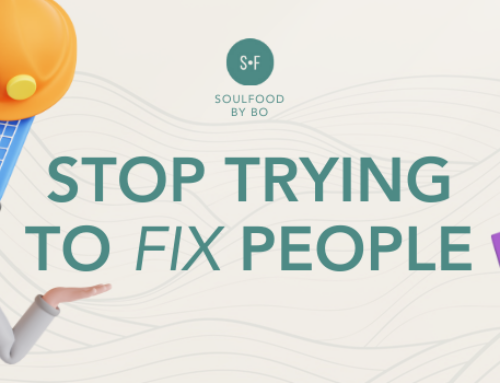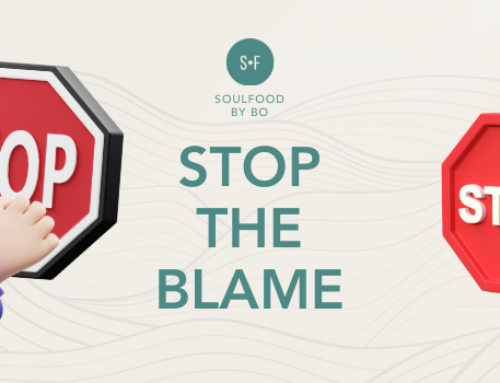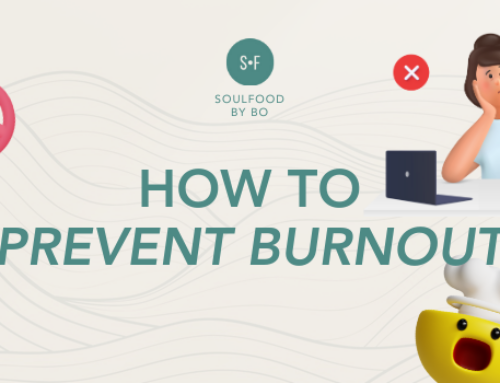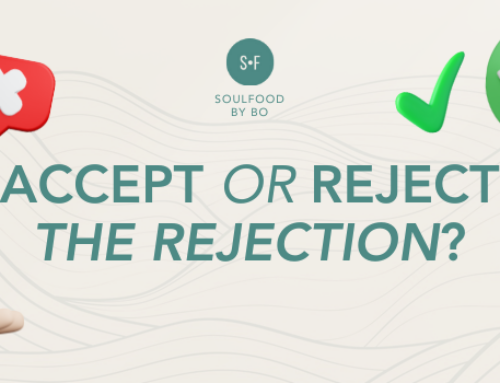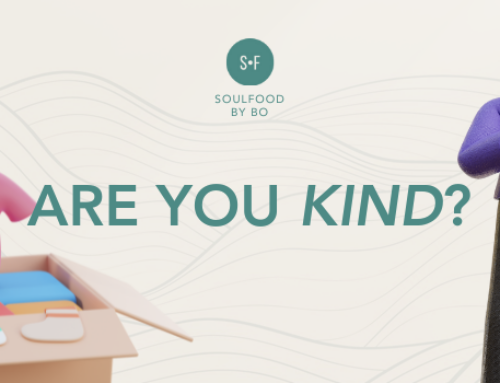8-Part Series:
How To Get Rid Of Bad Habits Now!
Part 1:
Discover What You Really Need
Do you have a hidden addiction that is stealing your life away?
Have you heard of the great Houdini?
As a young boy, I loved reading about him. Houdini was probably the most famous escape artist in the world. I’m not sure if the story I’m about to tell you is part legend and part history, but I find it utterly fascinating.
Houdini boasted he could escape any jail cell in less than an hour. One day, a small town in the British Isles built a new jail cell and they were proud of it. “Come give us a try,” they said to Houdini, and he agreed.
He walked into the prison cell bristling with confidence. After all, he had done this hundreds of times before.
Once the jail cell was closed, Houdini took off his coat and went to work. From his belt, he got a flexible but tough ten-inch piece of steel. He knelt in front of the door and started working on the lock.
At the end of 30 minutes, his confident expression had disappeared.
At the end of an hour, he was drenched with perspiration.
After two hours and totally exhausted, Houdini literally collapsed against the door. And the force of his weight was enough to push the door open!
Because in reality, the door had never been locked.
It was locked only in one place: In his own mind.
This meant only one thing. It was firmly locked.
Because whatever your mind says is locked–is locked.
Even if it isn’t.
You Can Be Free!
Friend, you can get rid of your bad habits.
You can be free from your addictions.
The Bible says, you have been called to live in freedom.[1]
I should know. I’m a recovering sex addict–jailed in compulsive pornography and sexual fantasies for years. Yes, even as I was serving God and preaching. Like Houdini, I tinkered with the “lock” of my jail cell and lost hope because I couldn’t unlock the door. (For my full story, read my book, Your Past Does Not Define Your Future. You can get it at www.shepherdsvoice.com.ph I’m making an audio book and E-book of this same book very soon.)
One day, I had a powerful realization. I discovered that the door wasn’t locked–except in my mind. I realized that at any time, I could push hard and the door would swing open–and I could simply walk out. And stay out!
And that’s what I did.
My friend, you can get rid of your addictions.
Here’s the truth: 70% of people get rid of their own addictions on their own. You see, there is no ONE singular way to get out of an addiction. There are many ways to get rid of your destructive bad habits. (We will examine all these ways in awhile.)
But before I explain them, let me answer a very important question.
What Is An Addiction Anyway?
I try to avoid technical words (my brain freezes up), so let me share with you my simple definition of an addiction. It’s any action that (1) you do repeatedly, (2) can’t stop doing, and (3) that’s harmful to your life.
Let me tell you a story my golfing friends like to tell. They say golfers love their golf more than anything else in the world…
One day, two guys were playing golf on a sunny day. In the distance, they saw a funeral car pass by–with a train of cars following it.
One of the golfers stops playing. He bows his head for a moment of silence.
The other golfer was very impressed. He said to his golfing partner, “Wow, I didn’t know you’re religious.”
“Not really,” said the other golfer, resuming his putting. “After all, I was married to that woman for 28 years.”
There’s nothing wrong with golf. It’s a healthy sport. But that widower was clearly addicted to it.
All of us agree that alcoholism, drug addiction, and compulsive gambling are serious forms of addictions. But I’m sure that most of us reading this article don’t have these more obvious addictions. But what about hidden addictions? They too destroy our life and the lives of our loved ones…
Do You Have A Hidden Addiction?
Here’s a list of common hidden addictions that harm us…
· “I eat compulsively”
This is the Number One way we try to feel better. I know of someone who eats at the slightest discomfort of life. If she’s angry, she eats. If she’s depressed, she eats. If she’s anxious, she eats. The truth however is that she isn’t really hungry for food. She is hungry for something else. Unless she sees this, she will continue snacking and pigging out, endangering her health.
· “I eat too much sweets, ice cream, chocolates”
I listed this separately just to impress upon you that chocolates is the Number One “Quick Fix” that people crave for when they are going through painful emotions. When a choco-addict feels hurt, or sad, or angry, or worried, she’ll spontaneously reach for her stash of choco bars. She has them on her desk, in the Ref, on her bedside table, and in her bag–for those “just in case” emergencies. Again, there’s nothing wrong with sweets. (I love dark chocolate and ice cream.) But in excess, it’s harmful. More importantly, you won’t address the real, deep hunger inside you if you keep popping candies in our mouth.
· “I go yo-yo dieting”
A few years ago, my friends were crazy about the “After Six” diet. And then, “Atkins” took over the dieting crowd. Soon, “No Carb!” became the battle cry of millions of women. After that, “South Beach” conquered the world by storm. (My friend says that he’s into the “North Park” diet. For a moment, I thought he was serious, until I realized that his favorite Chinese restaurant was named North Park.)
Personally, I don’t believe in quick diets. I believe in changing one’s eating habits permanently. I believe in changing one’s lifestyle forever–not just for 10 days or 30 days or 3 months. That means eating right and exercise.
By the way, the thin-like-a-broomstick super models found in Fashion magazines comprise only 3% of the world’s population. So I presume 97% of those reading this article have a body structure that resembles clunky vacuum cleaners rather than broomsticks. And it’s okay! You see, the goal is not to look like these super models and weigh less. The goal is to love your body (no matter what body structure you have) and be healthy inside and out. If you don’t watch it, dieting can be an addiction, and its severe form is the next item I’ll discuss.
· “I starve myself”
I met a young girl who was exceedingly thin. She was so thin, she could stand sideways and be invisible. Yet when I talked to her, she told me, “Uncle Bo, I’m so fat!” She grabs her reed-like arm, touches non-existent fat, and says, “See?” This young woman has Anorexia Nervosa. Starving herself (to death) is the only way she can control her seemingly uncontrollable life. Bulimia on the other hand is when a person gorges himself with food and vomits it all out. I know of others who are addicted to dieting pills and are harming their bodies.
· “I shop too much and have buying binges”
Lots and lots of women shop to feel better. They feel happy, beautiful, and alive when they buy a new shoe, a new stocking, a new blouse, a new perfume, a new watch… But if this is done repetitively and excessively, it’s a destructive habit. Do you want to know if you’re a shopaholic? Check your house. Is it full of stuff that you don’t use? Count how many shoes you have. Do you have 30 pairs that you haven’t used in a year? Do you have as many bags that you also haven’t used in a year? Many people are drowning in debt because they can’t control their shopping. In reality, deep within, a shopaholic isn’t looking for “something”. There’s an emptiness that can’t be filled up by a dress, a scarf, a bracelet, or a new pair of high heels. Ultimately, they’re looking for something they can’t buy.
· “I compulsively smoke”
Today, I see a lot of young people sitting in Coffee Shops–but instead of sitting inside where there’s air-conditioning, they sit outside under the sweltering heat of the Philippine sun–because they want to smoke. Isn’t that absurd? Today, I also see young people standing outside their offices during their breaks–again underneath the hot sun and breathing in the pollution of our smoke-belching buses–because they want to smoke. I tell you, it’s illogical. But like the golfer in my story above, addicts don’t think logically anymore. Nicotine is one of the most addictive substances in the world today. It’s a chemical that gets into your brain and at the first inhale, fights fatigue, suppresses appetite, and lifts your mood. It’s been proven beyond a shadow of a doubt that smoking can cause lung cancer, painful emphysema, bad breath, ugly teeth, dark lips, but to a smoker, who cares?
· “I get angry, yell too often, and throw temper tantrums”
For a rage-aholic, anger is his all-around tool. He uses it for every situation. It’s the only tool he knows how to use. When he’s afraid, he gets angry. When he’s worried, he gets angry. When he’s sad, he gets angry.
I compare anger to a hammer. Using anger for everything is as silly as using the hammer for sewing a shirt, drawing water, healing a wound, and cooking food. It simply won’t work. If you need to sew a shirt, you need a needle, not a hammer. If you need to draw water, you need a pail, not a hammer.
Because of this, anger-addicts are ineffective parents, spouses, friends, and business partners. Some of them argue too much, pick petty fights, and leave a trail of broken relationships. Others are more quiet and demure outside their homes because they bottle up their anger with their friends and in their workplace, but unleash their toxic anger on their kids.
· “I complain a lot”
It’s a silly bad habit. (But come to think of it, what bad habits aren’t silly?) You fill the room with your negativity. More importantly, you fill your life with negativity. And it attracts more of it, so you multiply the stuff you can complain about. Believe me, no one would like to be with a complainer except fellow complainers.
· “I worry too much”
God gave us the ability to panic for emergency situations where we need to act quickly. But for a worry-addict, almost every situation is an emergency situation. So throughout the day, she’s in constant panic mode. If the anger-addict person uses the hammer for everything, the worry-addict uses a needle for everything. She “needles” every situation, looking for what may go wrong, always imagining how everything will go wrong. And because our fears are powerful, we end up creating the imaginary monsters into existence.
· “I drink too much coffee (or cola).”
I know a human being (yes, he’s a human being) who drinks 10 cups of coffee every single day. My other friend drinks 6 cans of diet cola every single day. Because it’s diet, she argues that it’s no longer bad for her. I told her that because she’s drinking too much artificial sweeteners, she may end up with artificial diabetes. I was kidding, but I still think it’s not a wise thing to do.
· “I sleep too much”
Naps are great for your health. But you know, sleep has become an addiction. Usually, too much sleep is a sign of depression or being overwhelmed by our problems. These people don’t want to wake up in the morning. And during the day, they want to crawl back in bed, under their covers, shielding themselves from the seemingly hostile world around them.
· “I watch too much TV”
Telenovelas should be watched in moderation. But the problem is that Telenovelas are designed to be addicting. They always end with great cliff-hangers: The child will finally know who his real father is, or the young woman will now find out if she’s pregnant or not, or the man will finally meet the man who killed his mother 20 years ago…
Studies suggest that if you sit down in front of the TV set for 3 hours each day instead of spending time with your spouse or your kids or other endeavors, there is a probability that one is addicted. (I’m talking of normal, active people who have jobs, families, etc., not aged, bedridden, or sick people.) Another sign that you may be addicted is if you have a fantasy relationship with some stars you watch on TV. This is normal for kids, but not very normal for adults.
· “I clean the house compulsively”
I know a mother who cleans her house the way nuns clean their convents, except that she does the work of 15 nuns all by herself.
When I visited her home, I discovered everything was polished, sparkling, and perfectly clean. I wondered if germs thought twice of stepping on her floor because it was too clean.
She’d spend the entire day scrubbing floors, washing curtains, dusting furniture, and picking up after her kids.
Everything was in order. Even the kids had to be clean and pretty all day. (I pitied the kids.) Why was she like this? Because if the house wasn’t perfect, she felt people will talk against her. Bottom line, she was a very insecure person. In reality, I felt that she wanted to clean something inside her, but couldn’t, so she just went about cleaning her house instead.
· “I compulsively lust”
One day, a young father of two kids confessed to me that he watches 2 to 3 hours of internet porn a day. He says he has to wake up at 1am, while his wife was sleeping, to watch his pornography. “I hate it, Bo. I hate what it’s doing to me. I wake up groggy the next day and curse myself for doing it. But I can’t seem to stop…” I told him, “I know exactly what you feel. I experienced that too, except that back in my day, we had no internet. I would wake up at 1am to open my porn magazines. If I had none, I would walk out on the streets and search for them.” But I told him that I got out of it, and so can he. Anyone can. This is the reason for this 8-Part series of articles.
· “I work too hard”
Working hard is good. But when your family and your health suffer, you automatically know that it’s an addiction. The problem with workaholism is that it’s rewarded. People pat us on the back and tell us that we’re dedicated, loyal, and industrious. We get bonuses. We get promoted.
Let me tell you a very sad story. There was one popular Christian leader who travelled the world expanding his ministry for the poor. One day, his wife called him up and said, “Come home immediately. Your daughter committed suicide.” Thankfully, it was a failed attempt. But instead of going home that day, he instead went to Vietnam to continue his ministry work. A few years later, that daughter committed suicide again–and succeeded. This Christian leader died years later, fired by his own ministry leaders, estranged from his wife and children. His mistake was that he was addicted to his work.
· There are many other hidden addictions.
Compulsive gossip. Phone calls every hour of the day. Daily trips to the beauty parlor. Even religious addiction–for people whose families are breaking apart because they spend their entire time in church. Etcetera.
Why Do We Have Addictions Anyway?
From a superficial perspective, addictions provide an escape so you won’t feel your painful feelings.
And what are these painful feelings?
· Hurt: “I feel rejected.”
· Depression: “I feel low”; “I feel old”; “I feel ugly”; “I feel fat”
· Despair: “I feel my life is meaningless”
· Guilt: “I feel I’m bad”; “I feel I can’t meet the needs of my husband/kids”
· Anxiety: “I feel worried that bad things will happen”
· Fear: “I feel afraid that I will get hurt”
· Hate: “I feel angry at myself”; “I feel angry at others”
· Shame: “I feel I’m not worthy to even exist”
Let me share to you my own personal experience.
For years, the predominant feeling that ruled my life was shame.
I didn’t know it was shame. I got so used to this feeling, I thought it was part of life. I would wake up with this “bad” feeling already. All I knew was that I felt extremely sad. And my thoughts were always about my mistakes–real and imagined. Like a guy who only played one DVD in his DVD player, and did nothing else except press the “rewind” button, I simply paraded my past mistakes before me. And then I’d imagine how this person doesn’t like me, how that person is angry at me, how this person is rejecting me. And I would feel “it” in my gut. It was my constant companion, never leaving me.
Years later, I finally identified what I felt. It was shame.
I was ashamed that I existed. I was ashamed that I was alive.
Can you imagine waking up each morning with this feeling?
That was my life.
And so to escape my shame, I drowned myself in testosterone. I got into Porn. At least, these girls were smiling and disrobing to me. They must like me. My sexual fantasies were the same–these women were attracted to me.
For a moment, my shame disappeared.
But, after indulging in porn and masturbating, my shame deepened.
How could I, a servant of God, do such a thing?
But I kept doing it for years.
I threw myself into work–work that would make the world like me. My approval addiction was even more powerful than my sex addiction.
But twenty years ago, I took my first steps towards healing. It was a long journey. (If you want to read the full story, you can read my book, Your Past Does Not Define Your Future. It’s available at www.shepherdsvoice.com.ph. I’m making an audio book and E-book of this same book very soon.)
What Is Your Core Need?
At the bottom of all addictions is this statement: “I don’t love myself.”
At the core of an addict’s heart is an empty Love Tank.
Every addiction is a hunger for love.
He doesn’t like himself.
He doesn’t value himself.
He doesn’t love himself.
That is why I believe that only love can heal an addiction.
How Do You Get Rid Of Addictions?
There is no one way to do it.
But why do these various ways work? All of these work as long as they fill up our Love Tank. Once our Love Tank is filled, we realize we don’t belong to the jail cell and stay out.
Here are some of the ways of pushing that jail door…
· Spontaneous Maturity
There are people who got rid of their bad habits by growing up emotionally. In their younger years, they took drugs and abused alcohol. As they grew older, got married, and had kids, their self-identity changed. They kicked their addictions and grew in self-confidence. Somehow, their Love Tanks were filled in the process.
Not all experience this maturity. I know of a 56-year old man who’s been taking drugs for 40 years now. Marriage didn’t change him. Kids didn’t change him.
· Spiritual Conversion
My friend Tim is a classic story of spiritual conversion that healed his addictions. After attending a Life in the Spirit Seminar, he stopped smoking and drinking the very day of the Seminar–cold turkey. Prior to that day, Tim was a heavy smoker and drinker for 30 years. What happened on that day? Aside from the power of God, he felt these vices no longer fit his new identity. He saw himself as God’s son, no longer an alcoholic or smoker. Emotionally, he liked the new Tim. Ultimately, God’s love filled his Love Tank.
However, not all people who go through our Seminars experience this instant freedom. And like everyone else under the sun, even Tim continues to battle other hidden addictions. So what else can we do?
· “Go Back to Your Past” Psychology
I’m going to commit a crime. (Forgive me.) This is terribly simplistic, but I believe psychology is divided into two major camps–those who believe healing comes from the past and those who believe healing come from the present. I know it’s more complicated than this but let’s imagine it’s not.
Followers of Sigmund Freud are in the first camp. They’ll insist that for you to get free from your addictions, you need to go back to your past and deal with your unresolved issues. To do that, you need a trained psychotherapist to listen to you as you explore your unhealed wounds.
I used to believe that this is the only way to really help a person change.
Not anymore. My belief is now more nuanced.
Personally, I believe that psychotherapy works, and it’s NOT because of the brilliant, earth-shaking insights that one derives from psychotherapy. (These insights help, but I don’t think they’re key to our healing.) Instead, I believe psychotherapy works because of something quite simple: That another human being is listening to you–and that human connection fills up your Love Tank.
Why do I believe so? From experience, when another human being listens to you, doesn’t judge you, and loves you, you get healed.
That’s why Christian Psychologist Larry Crabb says that the Christian Church should be the best place of healing in the world. Why? Because it should be the most loving place on earth–where listening, acceptance, and respect is practiced. (Two “shoulds” that aren’t happening!)
I still believe that “Go Back To Your Past” Psychology is great for diagnosis. But there lies its weakness. Now that I know my sickness, how will I heal it? After I found out that because I was sexually molested at age 8 and 13, I was more open to sex addiction, now what? The question remains the same–how do I cure it? I still had to deal with my present reality. And here lies the strength of the second division of psychology…
· “Deal With The Present” Psychology
The other “division” of psychology doesn’t believe that this “unearthing of the past” is the key to healing. It helps, but isn’t essential to healing. Instead, they believe that the real cure is dealing with the NOW. For example, Reality Therapy pioneered by Dr. William Glasser helps people identify what they want in life and practice their power of choice.
The entire Positive Thinking genre made popular by Dr. Norman Vincent Peale falls in this category. Even NLP or Neuro-Linguistic Programming, is included here. And many more. These approaches believe that by changing your present thinking and acting upon your choices, you change your life.
· 12-Step Group Approach
Alcoholics Anonymous (AA) and the entire recovery movement have touched millions of people. Today, you can almost be sure that there’s a support group out there for your addiction, whatever it may be. From Narcotics Anonymous to Sex-Addicts Anonymous, from Food Addicts Anonymous to Shopaholics Anonymous. Some of its most staunch practitioners believe it’s the ONLY way to help people, which again, I disagree. But when it does work, why does it work? Sorry for saying this again, but I believe that the program helps you fill up your Love Tank. The effort you give in attending meetings are baby steps towards recovery, making you gain self-confidence. The power of a loving community surrounding you fills you with love as well.
· Practical Approach
A friend of mine stopped smoking by jogging, sucking menthol candies after meals, and staying away from smoker friends. His wife and kids were also very supportive. He swears by this route, and I don’t doubt him. I think every time he took a baby step towards his goal, he felt good about himself. This feeling translated in greater self-respect, which meant that his Love Tank was getting filled-up.
· My Approach? All of the Above!
In other words, I believe in the Spiritual-Psychological-Positive-Group-Practical Approach. Because I will use anything that will fill up a person’s Love Tank.
Walk Towards Your Freedom Now
For the longest time, you’ve been in a prison cell.
You’re tired. You’re desperate.
You’ve been tinkering with that impossible lock on the door.
But in reality, there is no lock.
You think there’s a lock, but there’s none.
You’ve been deceived. Cheated.
The lock is in your mind, not in the door.
What is that lock in your mind?
I call it your “homing instinct”. That means an unconscious part of you would like to stay in that dirty prison because you’ve become used to it. It’s been your home for years. Something within you–the defeated you, the failed you, the unloved you–wants to go back to that dungeon. A part of you feels that’s what you deserve. This drive within you is called the “homing” instinct. Hurting people recreate their home, no matter how painful those homes were.
But as you fill up your Love Tank, as you value yourself more and as you receive love from God and others, you realize that you deserve a new home. You realize that you don’t belong there anymore. With a full Love Tank, your “homing” instinct no longer drives you to your past home. Instead, it drives you to your future home. You begin to develop a “vision” instinct.
I’ll discuss more on this in the next parts of this series.
I remain your friend,
Bo Sanchez
PS. This is an 8-Part Series on How To Get Rid Of Bad Habits Now! which will appear here in my website. You may want to read my story on how I got healed from my inner wounds and addiction, entitled Your Past Does Not Define Your Future. You can order my book through www.shepherdsvoice.com.ph (I’m making an audio book and E-book of this same book and it will be available very soon.)
PS2. I’m mailing a FREE Novena To God’s Love Prayer Booklet to all my friends who give a monthly Love Offering to our ministry through www.KerygmaFamily.com I made the Novena To God’s Love myself. It’s designed to focus on 7 Dreams that you’re going to pray for and act upon. (If you’re not yet a member of www.KerygmaFamily.com, log on here now!)
[1] Galatians 5:13

